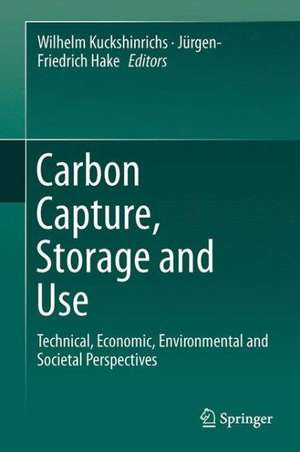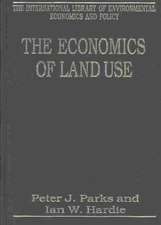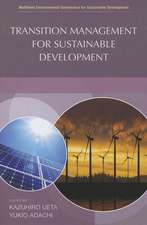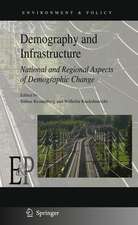Carbon Capture, Storage and Use: Technical, Economic, Environmental and Societal Perspectives
Editat de Wilhelm Kuckshinrichs, Jürgen-Friedrich Hakeen Limba Engleză Hardback – 28 noi 2014
| Toate formatele și edițiile | Preț | Express |
|---|---|---|
| Paperback (1) | 1002.31 lei 6-8 săpt. | |
| Springer International Publishing – 23 aug 2016 | 1002.31 lei 6-8 săpt. | |
| Hardback (1) | 1008.43 lei 6-8 săpt. | |
| Springer International Publishing – 28 noi 2014 | 1008.43 lei 6-8 săpt. |
Preț: 1008.43 lei
Preț vechi: 1229.79 lei
-18% Nou
Puncte Express: 1513
Preț estimativ în valută:
192.97€ • 201.88$ • 160.30£
192.97€ • 201.88$ • 160.30£
Carte tipărită la comandă
Livrare economică 02-16 aprilie
Preluare comenzi: 021 569.72.76
Specificații
ISBN-13: 9783319119427
ISBN-10: 3319119427
Pagini: 300
Ilustrații: XVII, 347 p. 71 illus., 1 illus. in color.
Dimensiuni: 155 x 235 x 20 mm
Greutate: 0.69 kg
Ediția:2015
Editura: Springer International Publishing
Colecția Springer
Locul publicării:Cham, Switzerland
ISBN-10: 3319119427
Pagini: 300
Ilustrații: XVII, 347 p. 71 illus., 1 illus. in color.
Dimensiuni: 155 x 235 x 20 mm
Greutate: 0.69 kg
Ediția:2015
Editura: Springer International Publishing
Colecția Springer
Locul publicării:Cham, Switzerland
Public țintă
ResearchCuprins
Introduction.- 1. Carbon Capture and Utilization as an Option for Climate Change Mitigation: Integrated Technology Assessment.- Part I- Technologies: Status and R&D Prospects.- 2. Carbon Capture Technologies.- 3. CO2 Transportation.- 4. Opportunities for Utilizing and Recycling CO2.- 5. Environmental Aspects of CCS.- 6. Safe Operation of Geological CO2 Storage Using the Example of the Pilot Site in Ketzin.- Part II - Economic and Social Perspectives.- 7. Economic Analysis of Carbon Capture in the Energy Sector.- 8. Cost Analysis for CCS in Selected Carbon-Intensive Industries.- 9. CCS Transportation Infrastructures: Technologies, Costs, and Regulation.- 10. The System Value of CCS Technologies in the Context of CO2 Mitigation Scenarios for Germany.- 11. Public Acceptance.- Part III - Framework for Energy and Climate Policy.- 12. No CCS in Germany Despite the CCS Act.- 13. CCS Policy in the EU: Will It Pay Off or Do We Have to Go Back to Square One?.- 14. International Cooperation in Support of CCS.- Part IV - Conclusion.- 15. Evaluation Index of Carbon Capture and Utilization: A German Perspective and Beyond.
Textul de pe ultima copertă
Carbon Capture and Storage technologies (CCS) are moving from experiment toward commercial applications at a rapid pace, driven by urgent demand for carbon mitigation strategies. This book examines the potential role of CCS from four perspectives: technology development, economic competitiveness, environmental and safety impacts, and social acceptance. IEK-STE of Forschungszentrum Juelich presents this interdisciplinary study on CCS, based on methods of Integrated Technology Assessment.
Following an introductory chapter by editor Wilhelm Kuckshinrichs, Part I of the book surveys the status of carbon capture technologies, and assesses the potential for research and development of applications that are useful at scales required for meaningful mitigation. Transportation, Utilization and Environmental Aspects of CO2 receive chapter-length treatments, and the section concludes with an examination of safe geological storage of CO2 based on the example of the Ketzin pilot site, not far from Berlin.
Part II covers Economic and Societal Perspectives. The first chapter discusses the use of CCS in the energy sector, analyzing costs associated with electricity generation and CO2 mitigation on the basis of technology-specific cost and process parameters, along with a merit-order illustration of the possible implications of CCS facilities for energy costs. Later chapters outline the costs of CCS application in energy- and CO2-intensive industries; analyze system characteristics of CCS infrastructures, showing that the infrastructure cost function depends on the ratio of fixed to variable costs, as well as on the spatial distribution of CO2 sources and storage facilities; interpret cross-sector carbon mitigation strategies and their impacts on the energy and CO2 balance; and discuss awareness and knowledge of CCS, attitudes towards it, and how the risks and benefits of CCS areperceived.
Part III discusses the Framework for Energy and Climate Policy, with chapters on acceptance and adoption of CCS policy in Germany, and the EU, and an assessment of international cooperation in support of CCS.
The final chapter summarizes the central arguments, discusses the potential role of carbon capture and utilization as part of a German transformation strategy, and extrapolates the findings to European and international contexts.
Following an introductory chapter by editor Wilhelm Kuckshinrichs, Part I of the book surveys the status of carbon capture technologies, and assesses the potential for research and development of applications that are useful at scales required for meaningful mitigation. Transportation, Utilization and Environmental Aspects of CO2 receive chapter-length treatments, and the section concludes with an examination of safe geological storage of CO2 based on the example of the Ketzin pilot site, not far from Berlin.
Part II covers Economic and Societal Perspectives. The first chapter discusses the use of CCS in the energy sector, analyzing costs associated with electricity generation and CO2 mitigation on the basis of technology-specific cost and process parameters, along with a merit-order illustration of the possible implications of CCS facilities for energy costs. Later chapters outline the costs of CCS application in energy- and CO2-intensive industries; analyze system characteristics of CCS infrastructures, showing that the infrastructure cost function depends on the ratio of fixed to variable costs, as well as on the spatial distribution of CO2 sources and storage facilities; interpret cross-sector carbon mitigation strategies and their impacts on the energy and CO2 balance; and discuss awareness and knowledge of CCS, attitudes towards it, and how the risks and benefits of CCS areperceived.
Part III discusses the Framework for Energy and Climate Policy, with chapters on acceptance and adoption of CCS policy in Germany, and the EU, and an assessment of international cooperation in support of CCS.
The final chapter summarizes the central arguments, discusses the potential role of carbon capture and utilization as part of a German transformation strategy, and extrapolates the findings to European and international contexts.
Caracteristici
Approaches CCS from the perspectives of technology development, economic competitiveness, environmental and safety impacts, and social acceptance Discusses awareness, knowledge and attitudes toward CCS and perceptions of its risks and benefits Presented by IEK-STE of Forschungszentrum Juelich (Germany), based on methods of Integrated Technology Assessment Includes supplementary material: sn.pub/extras

















